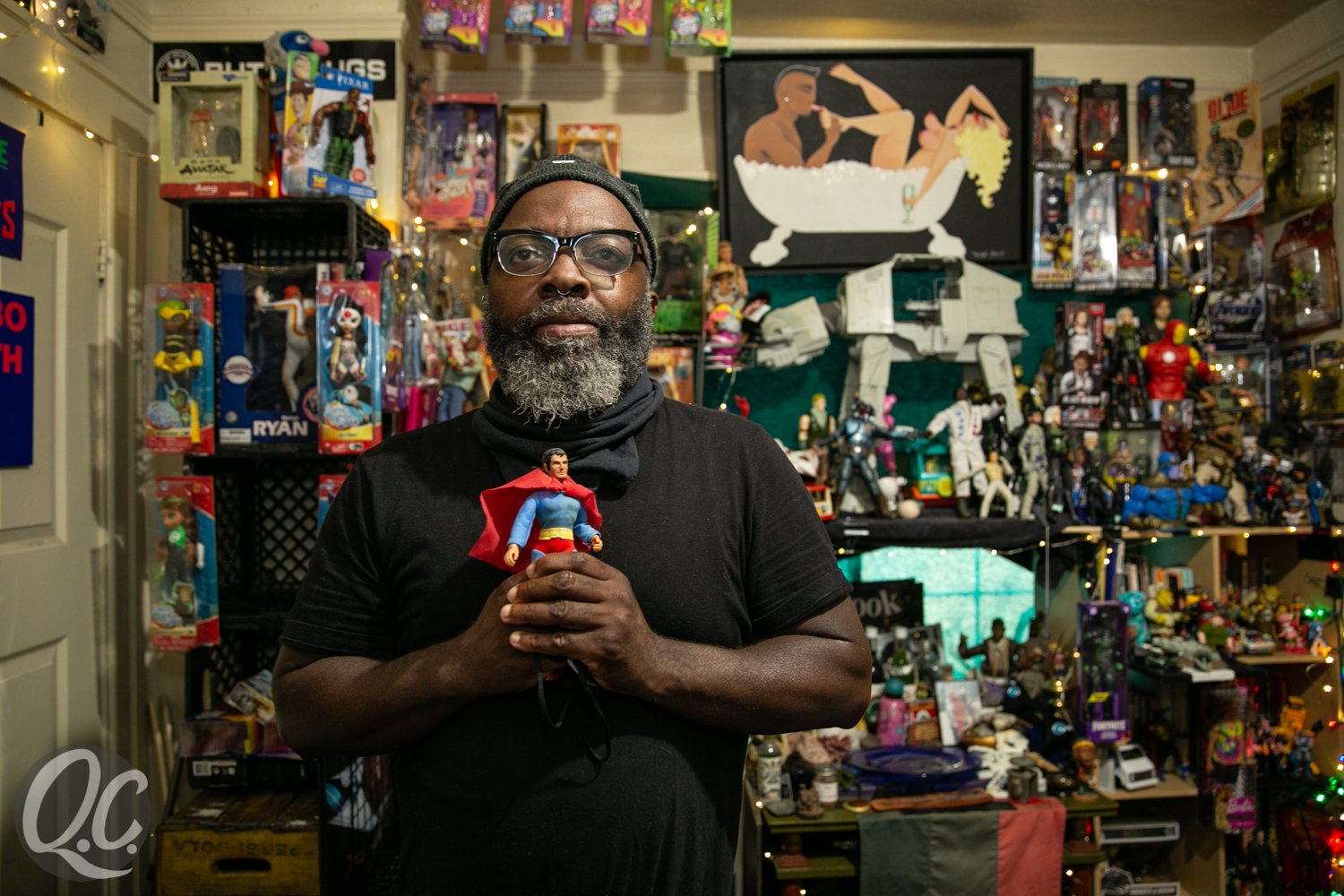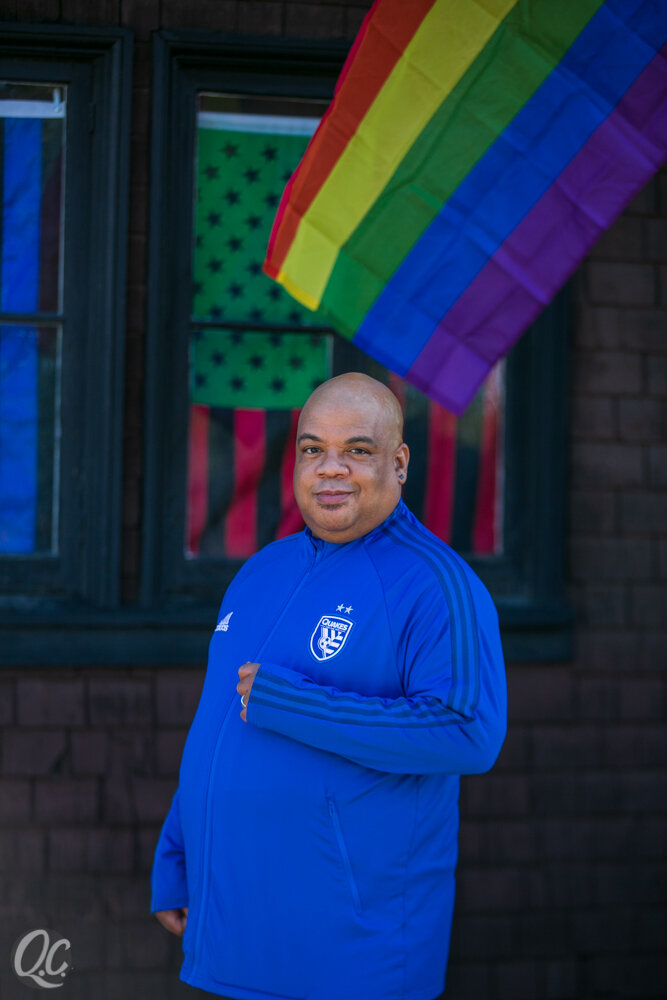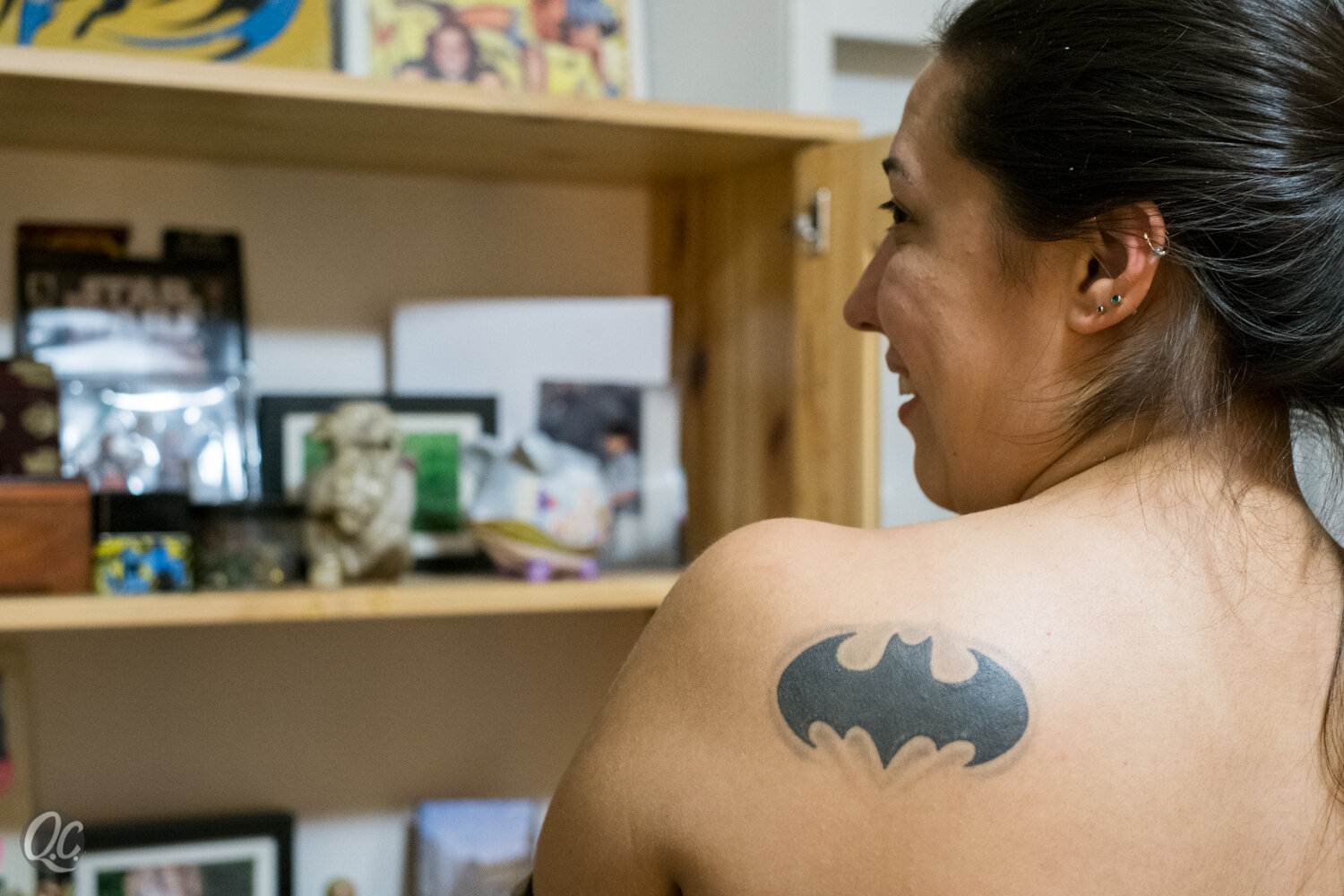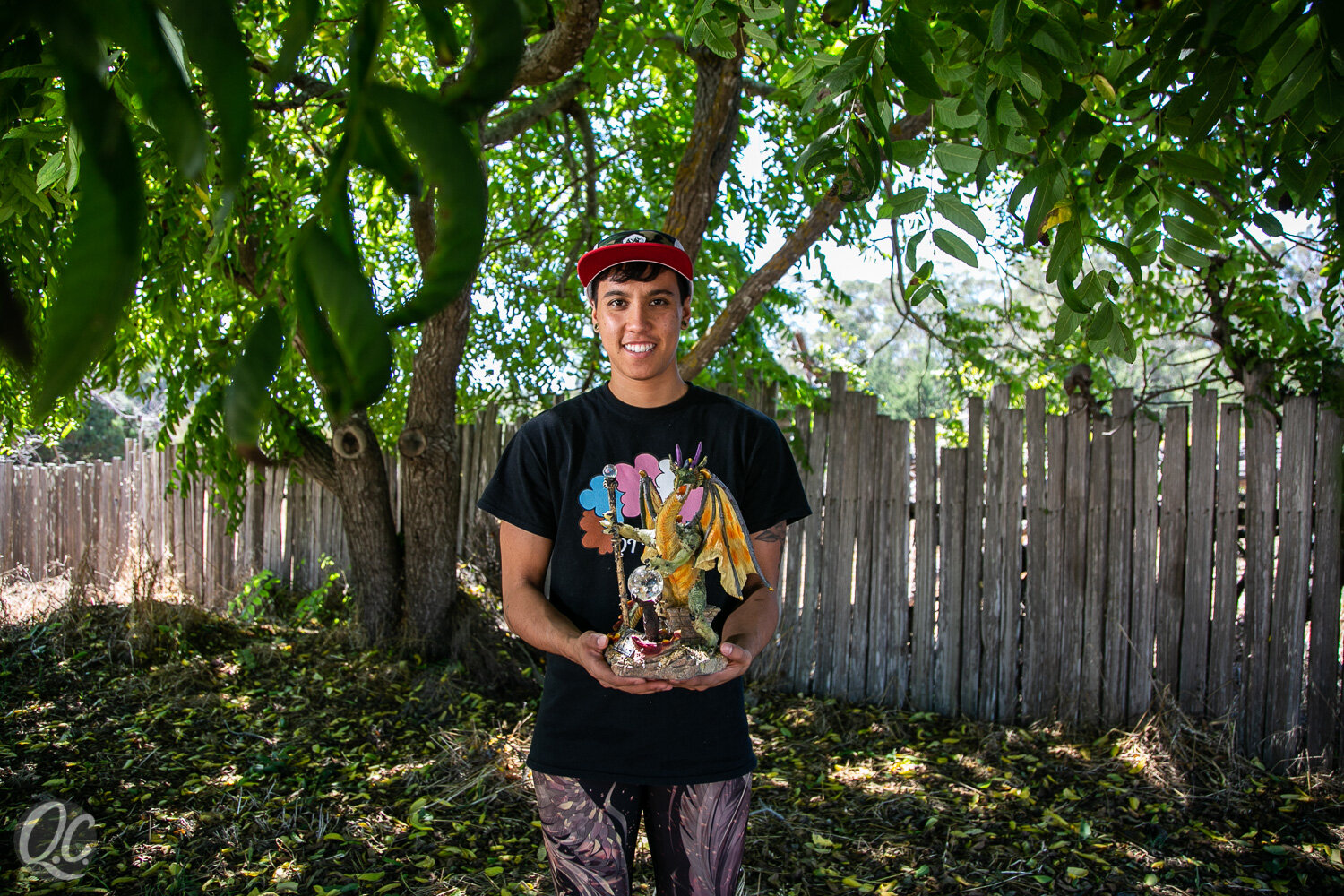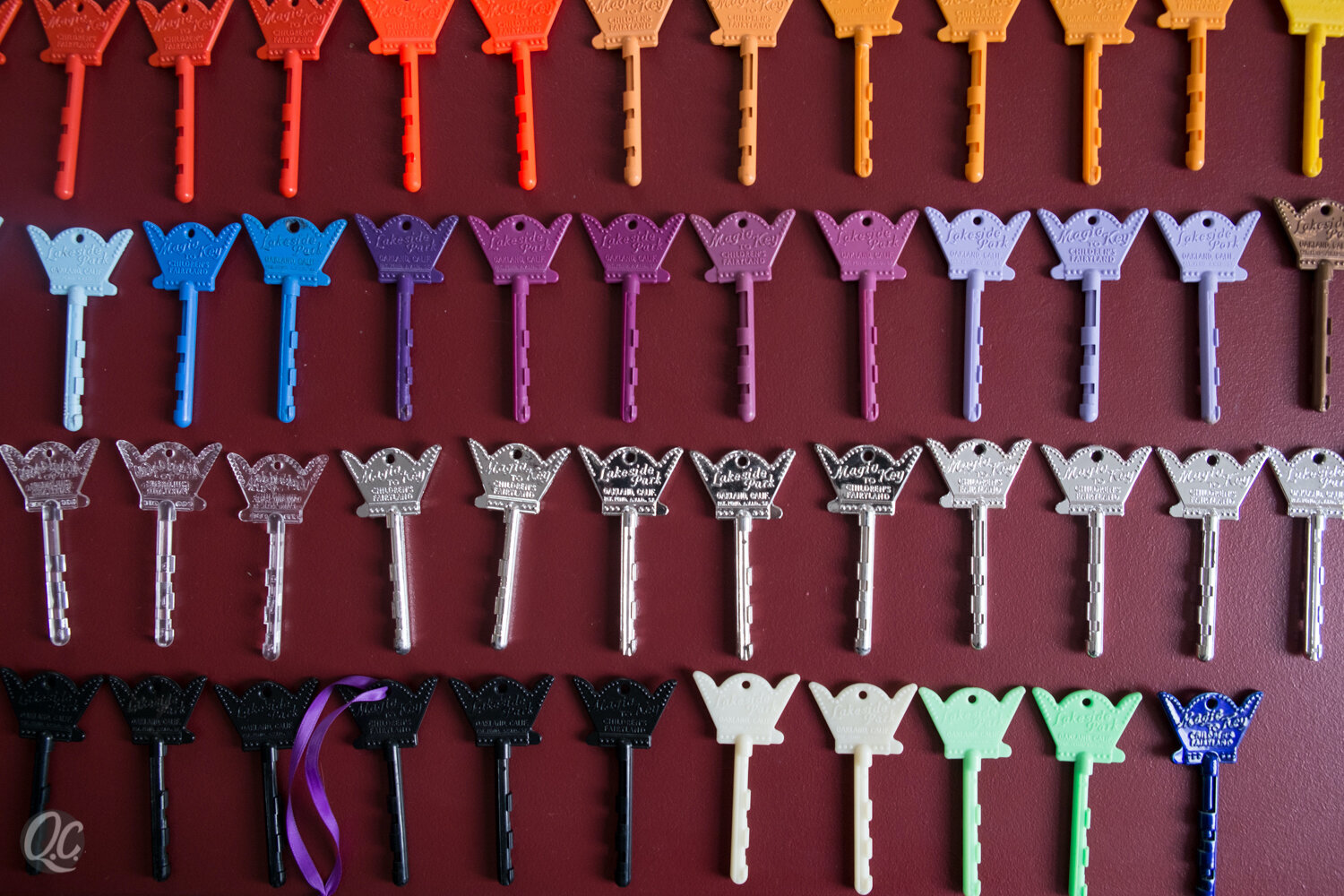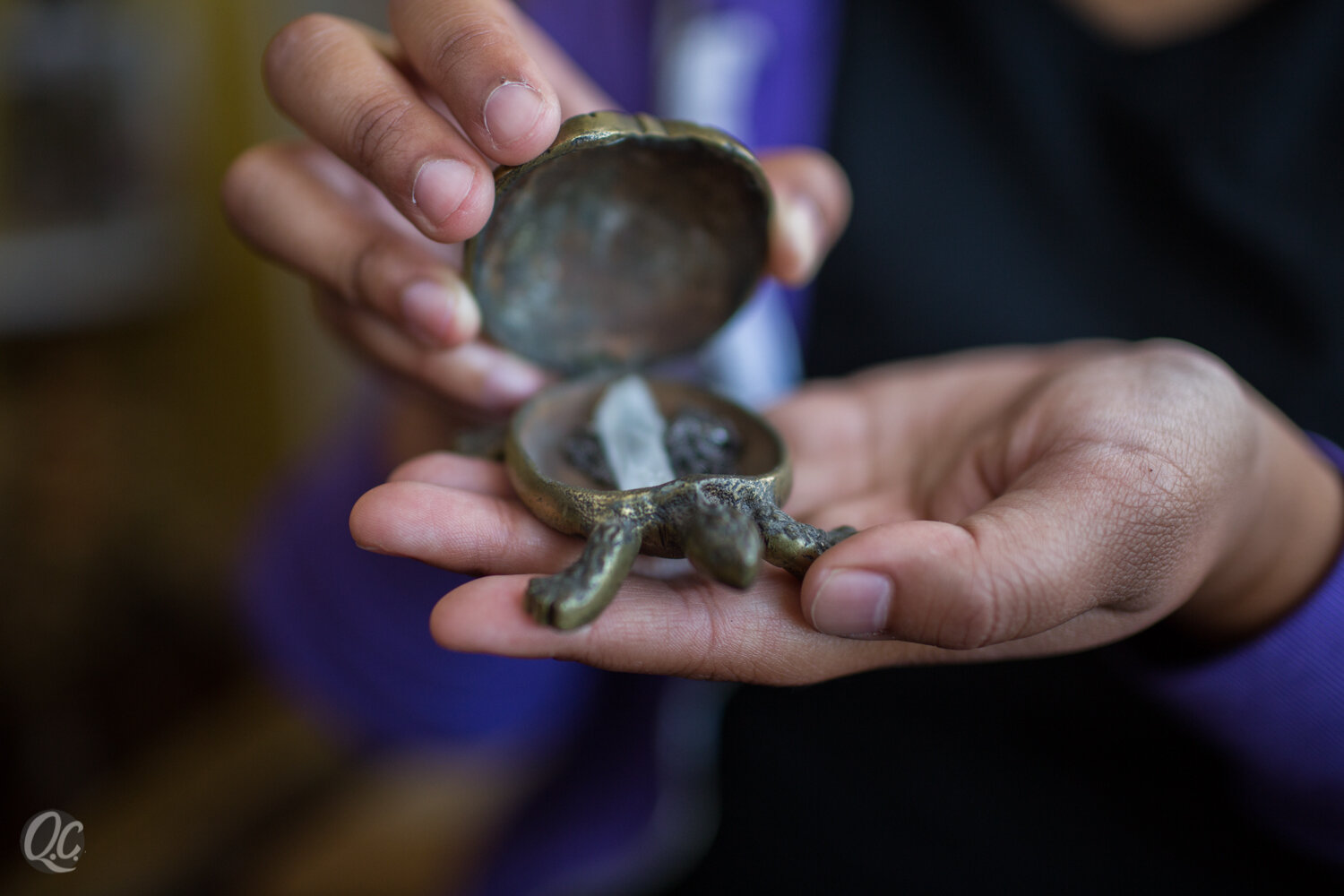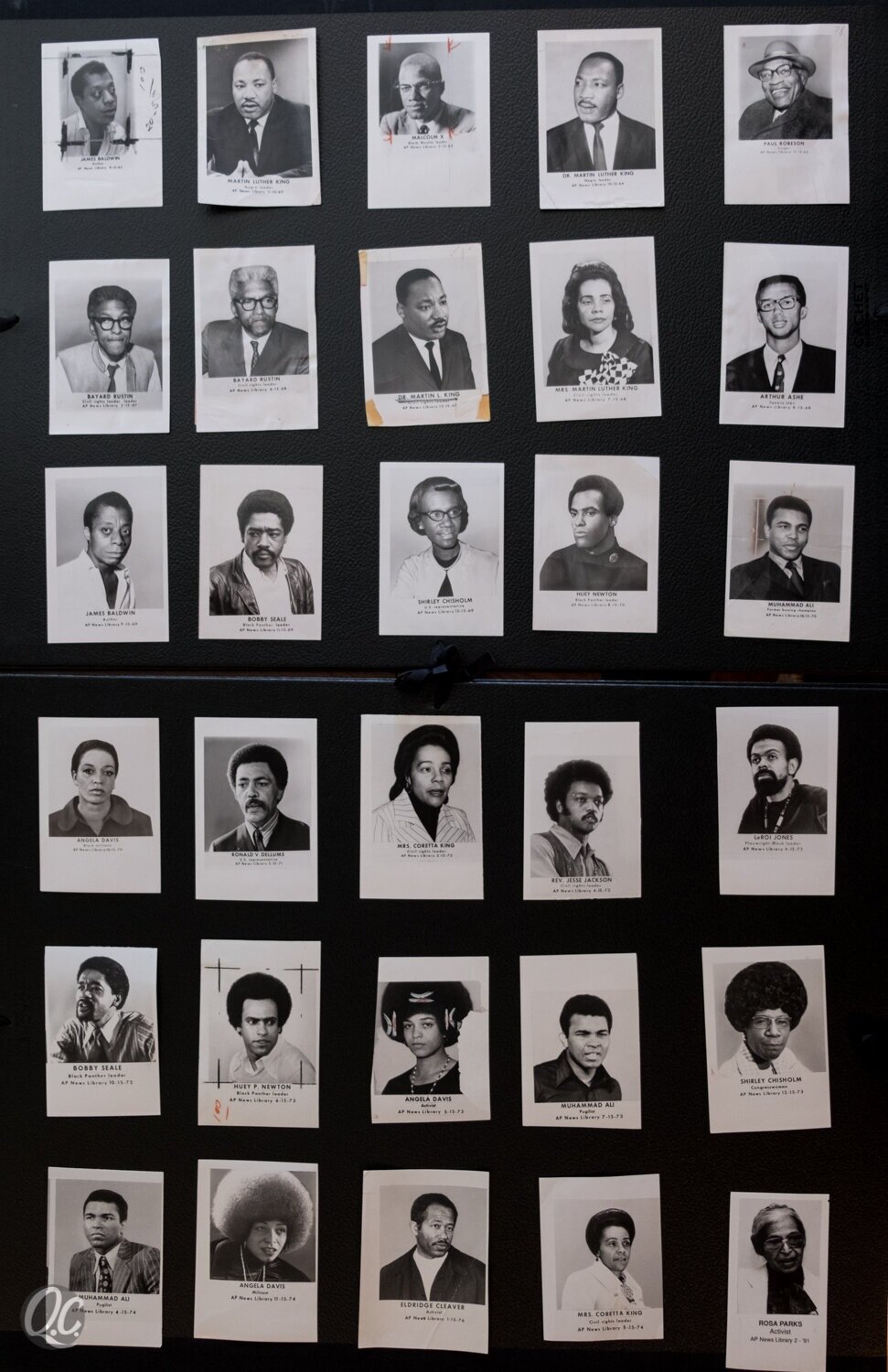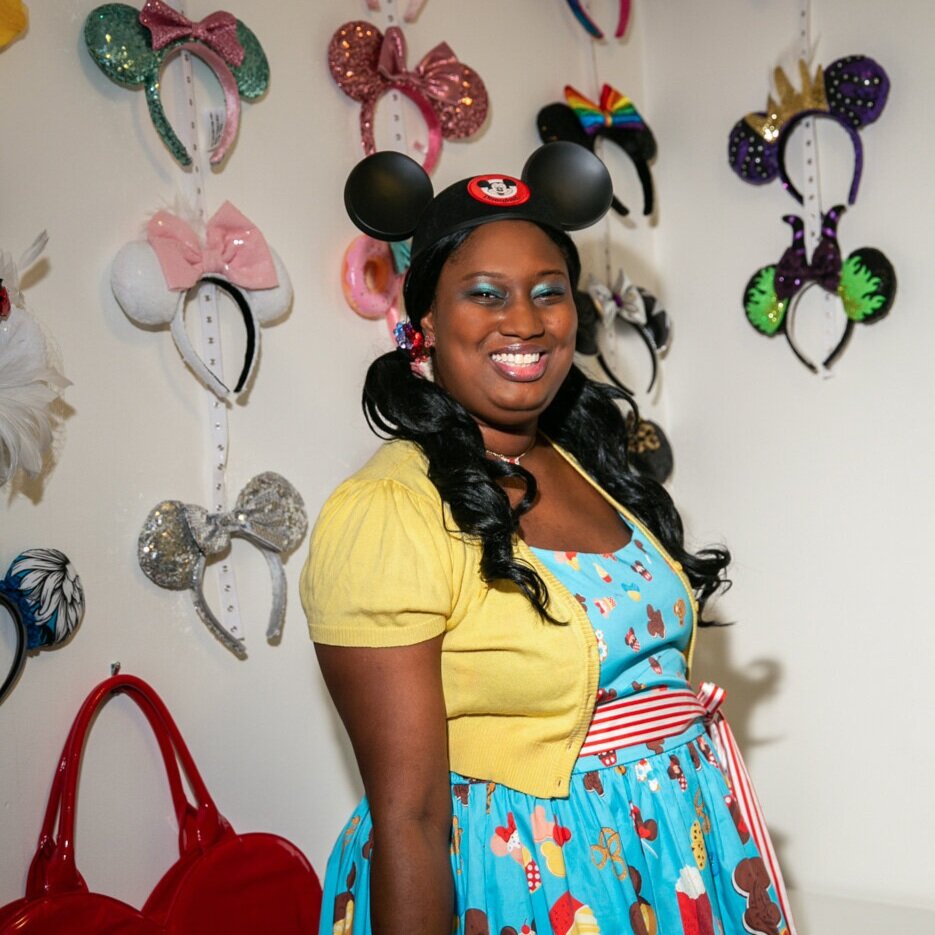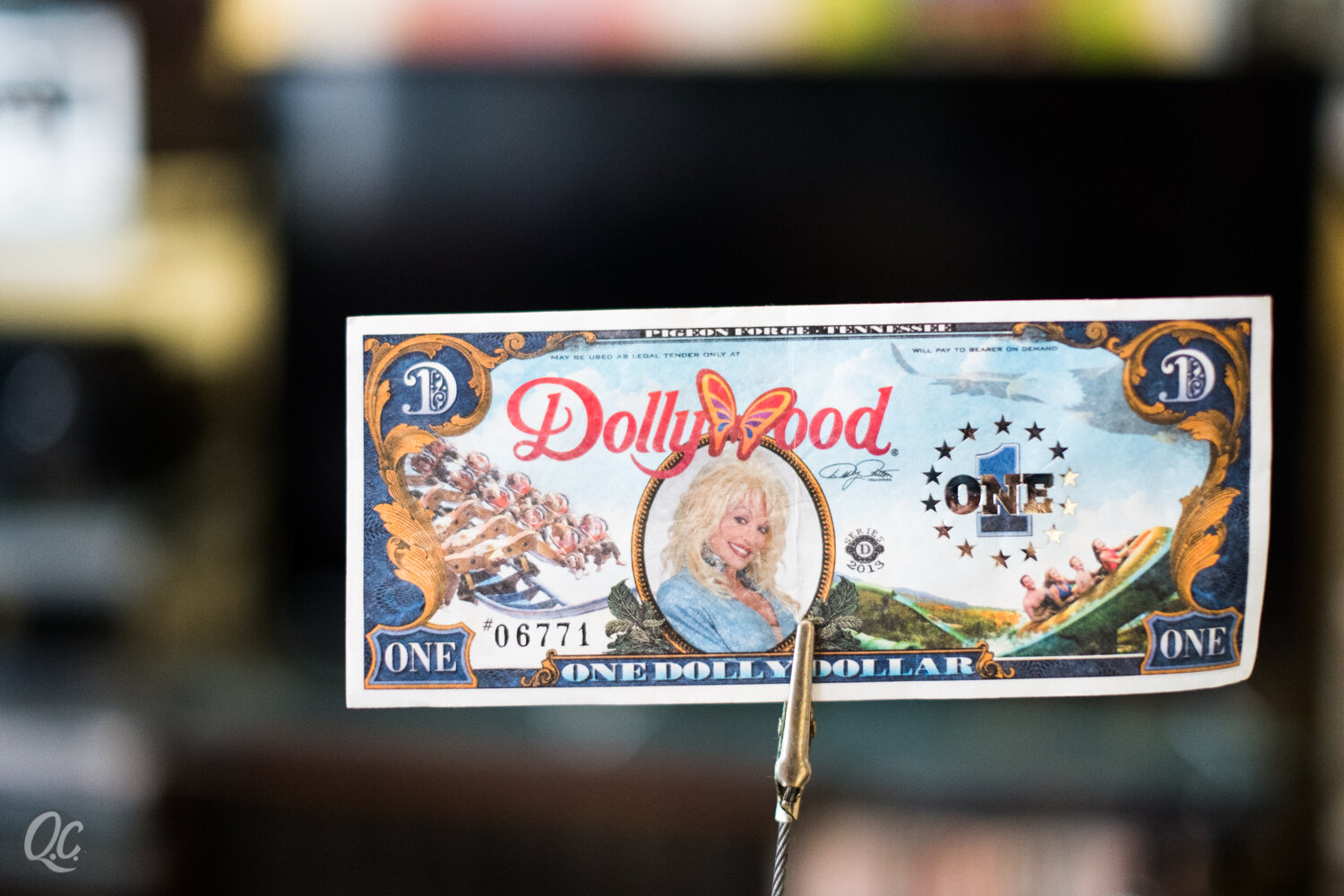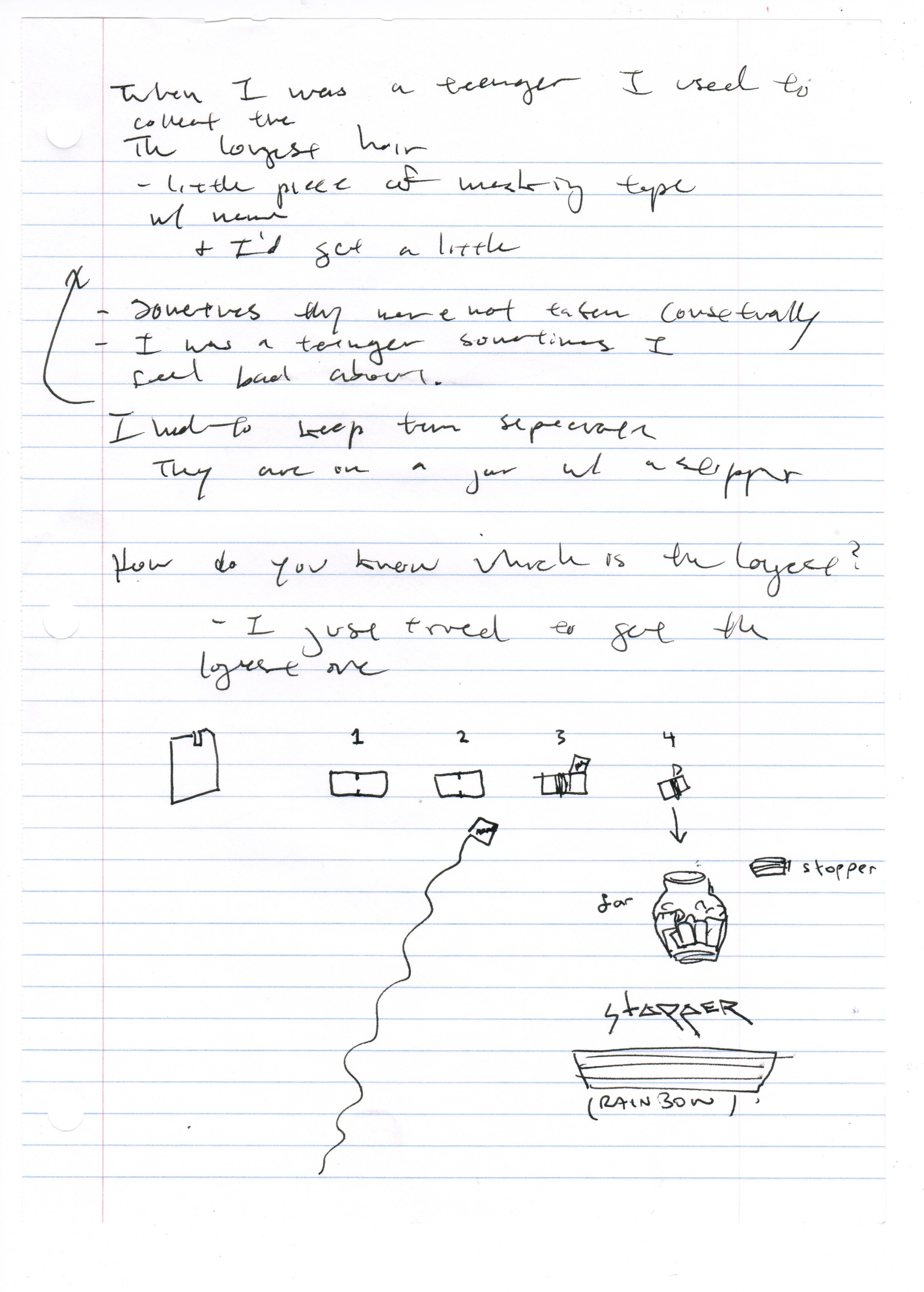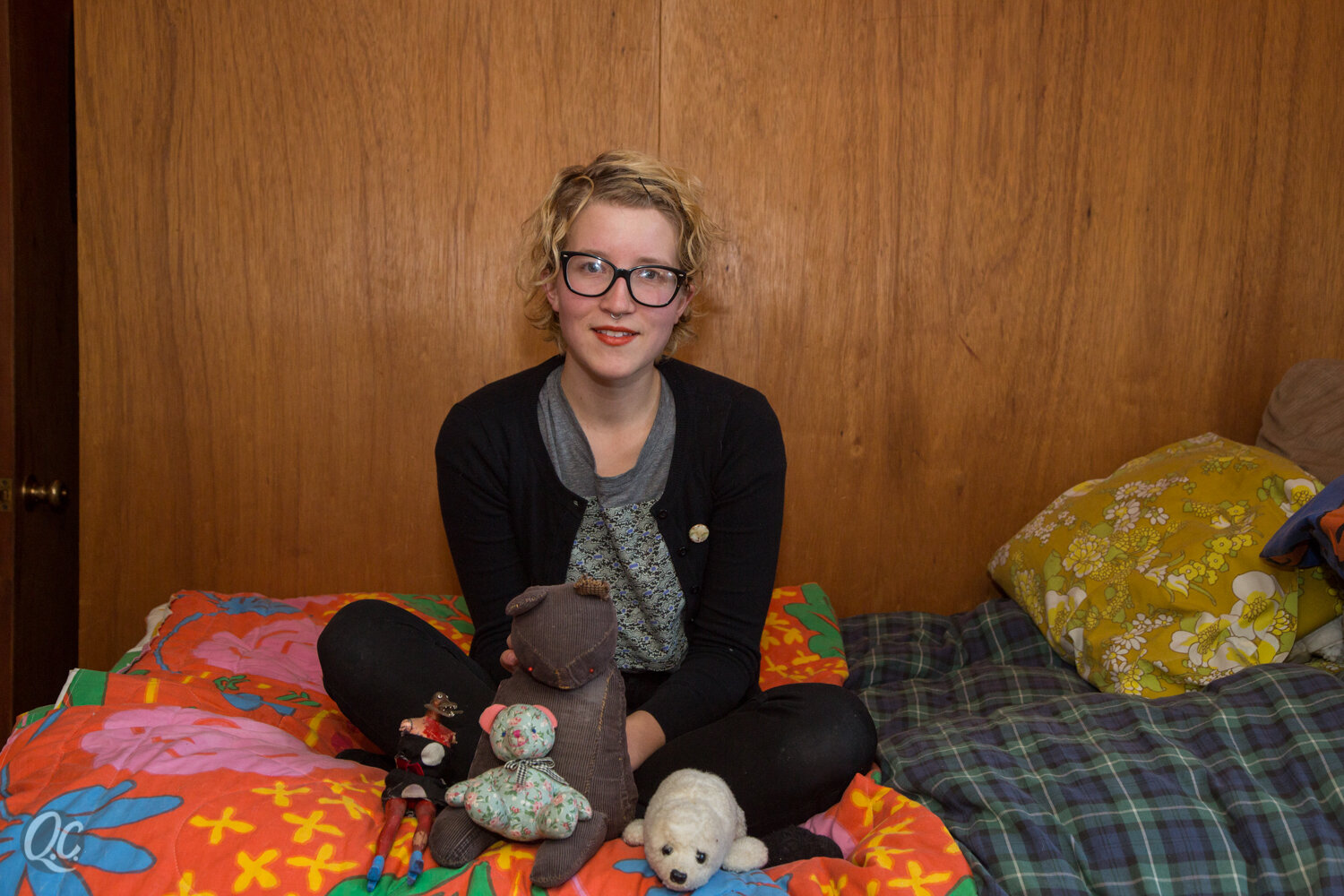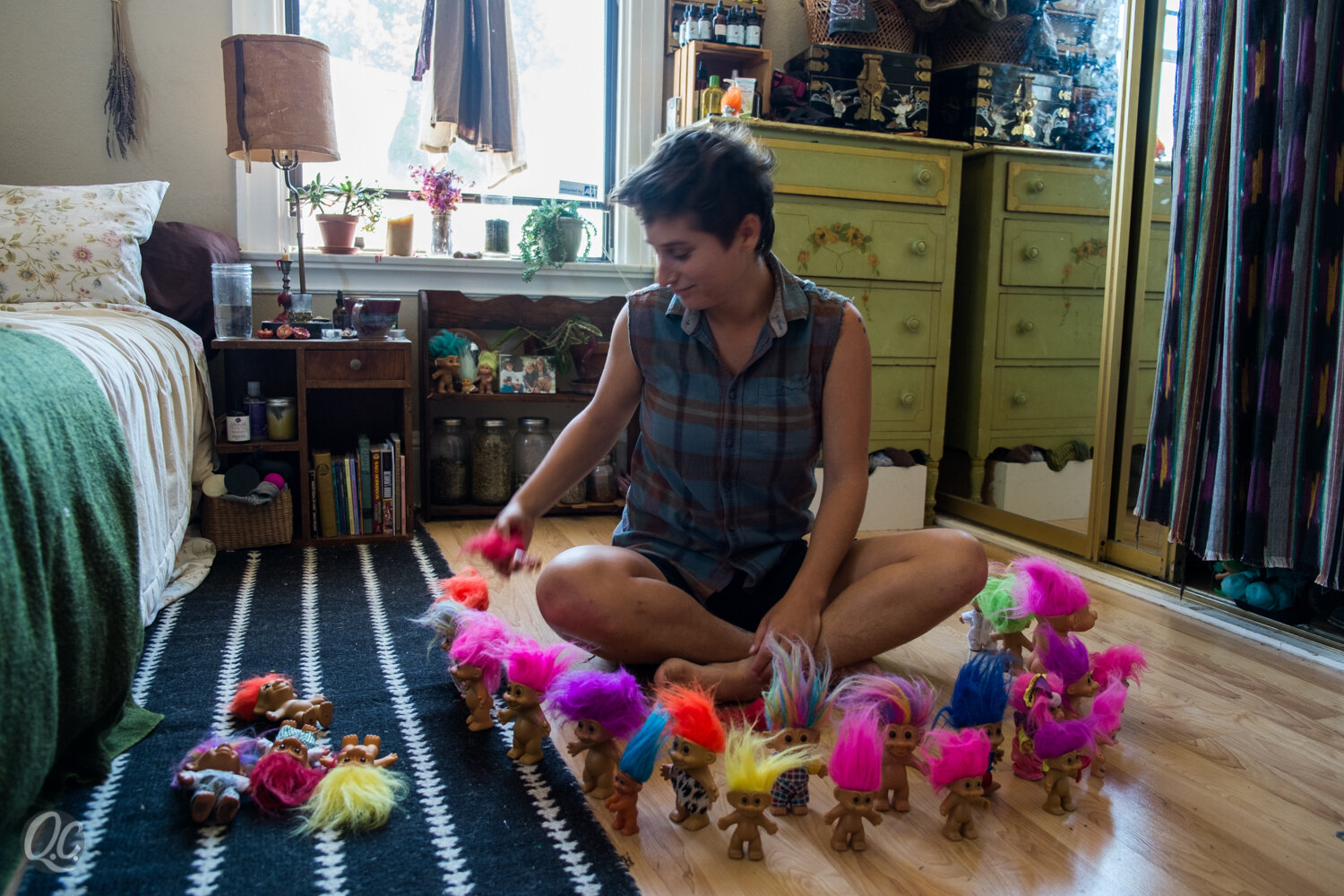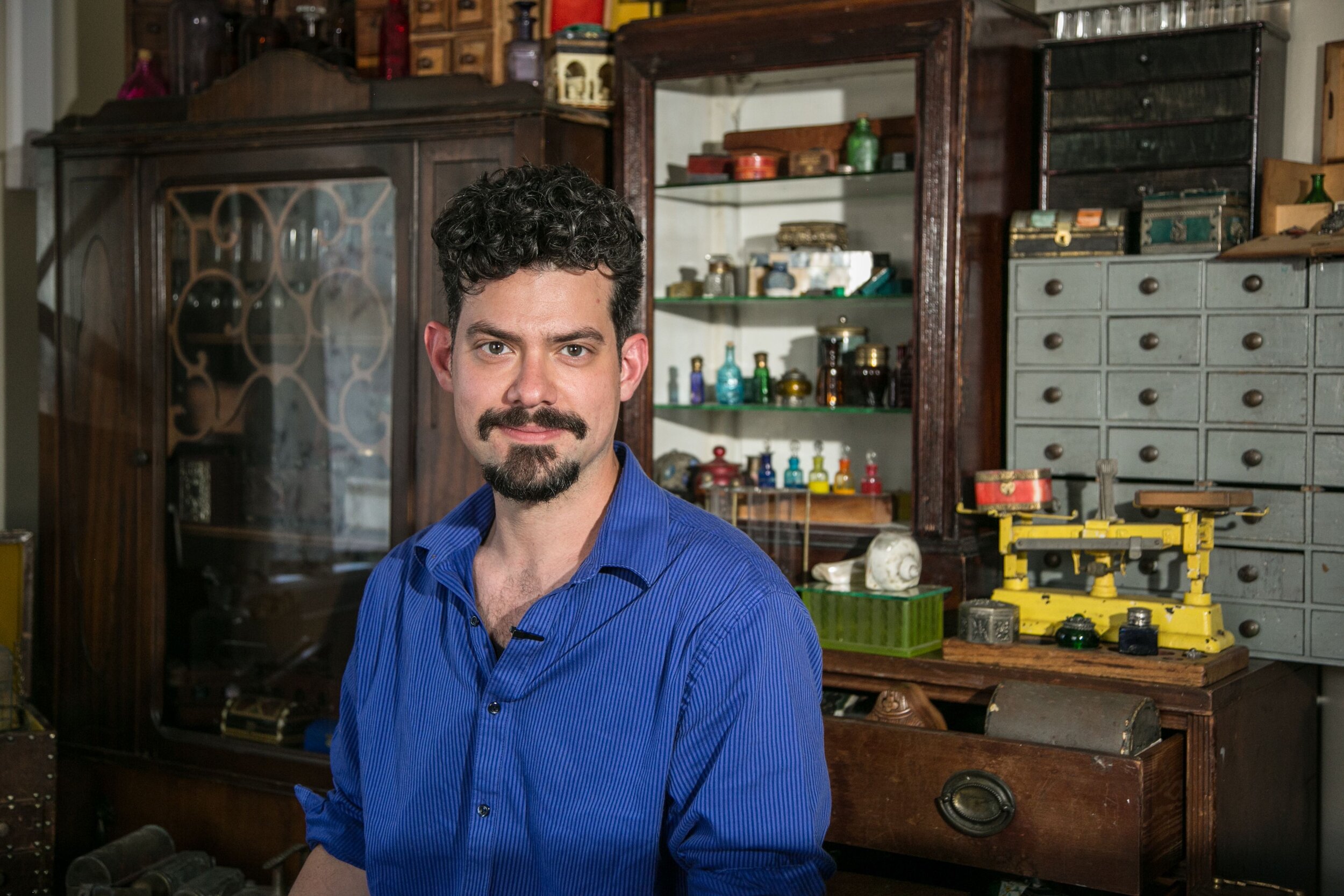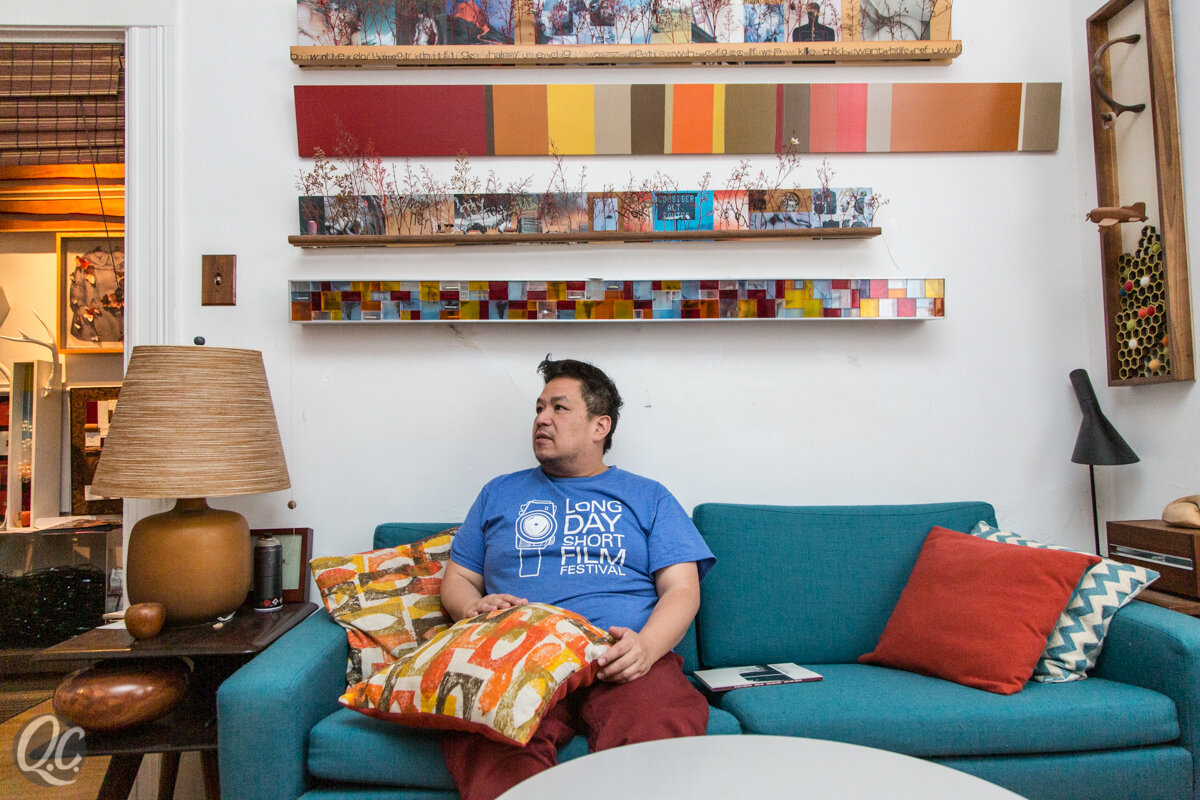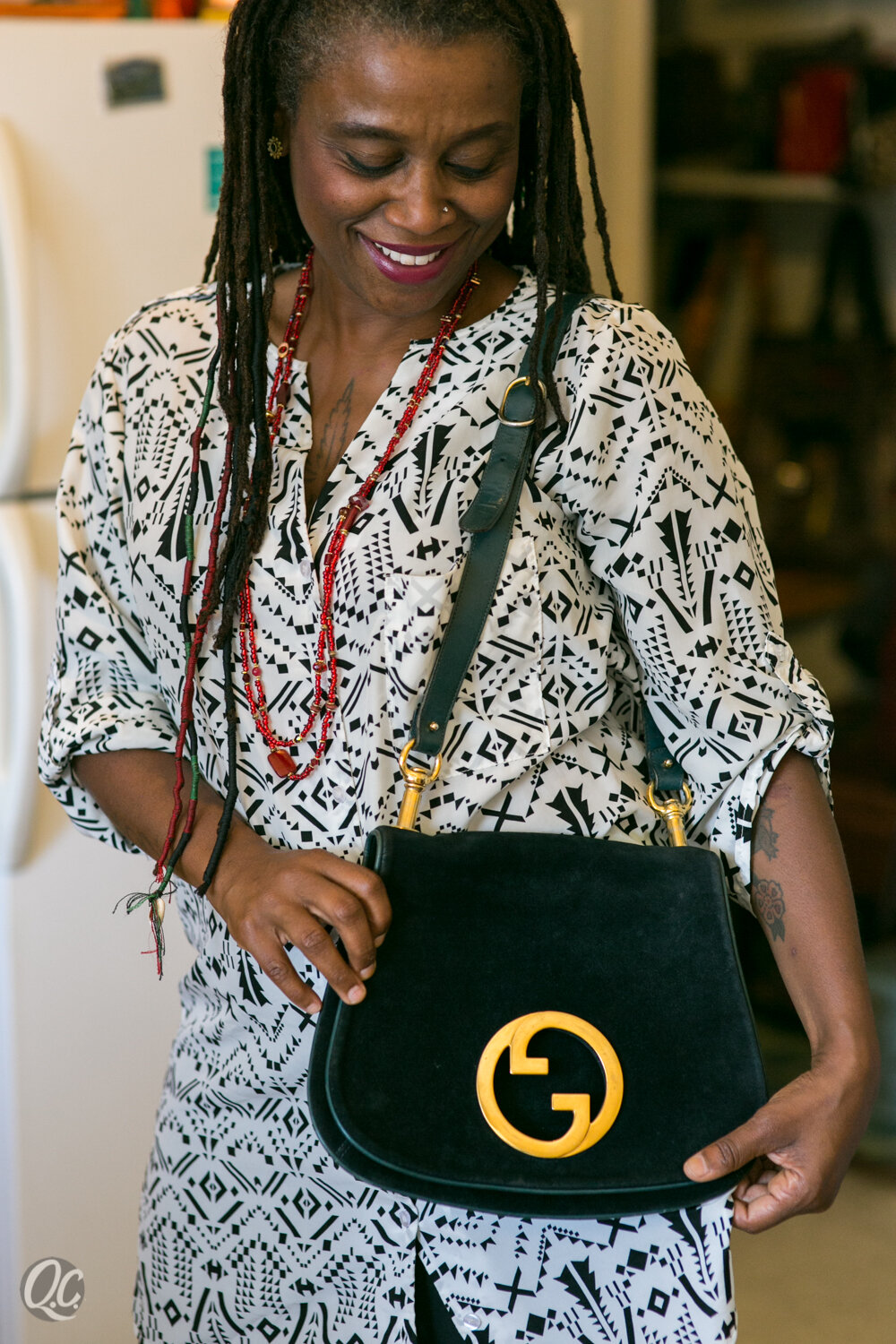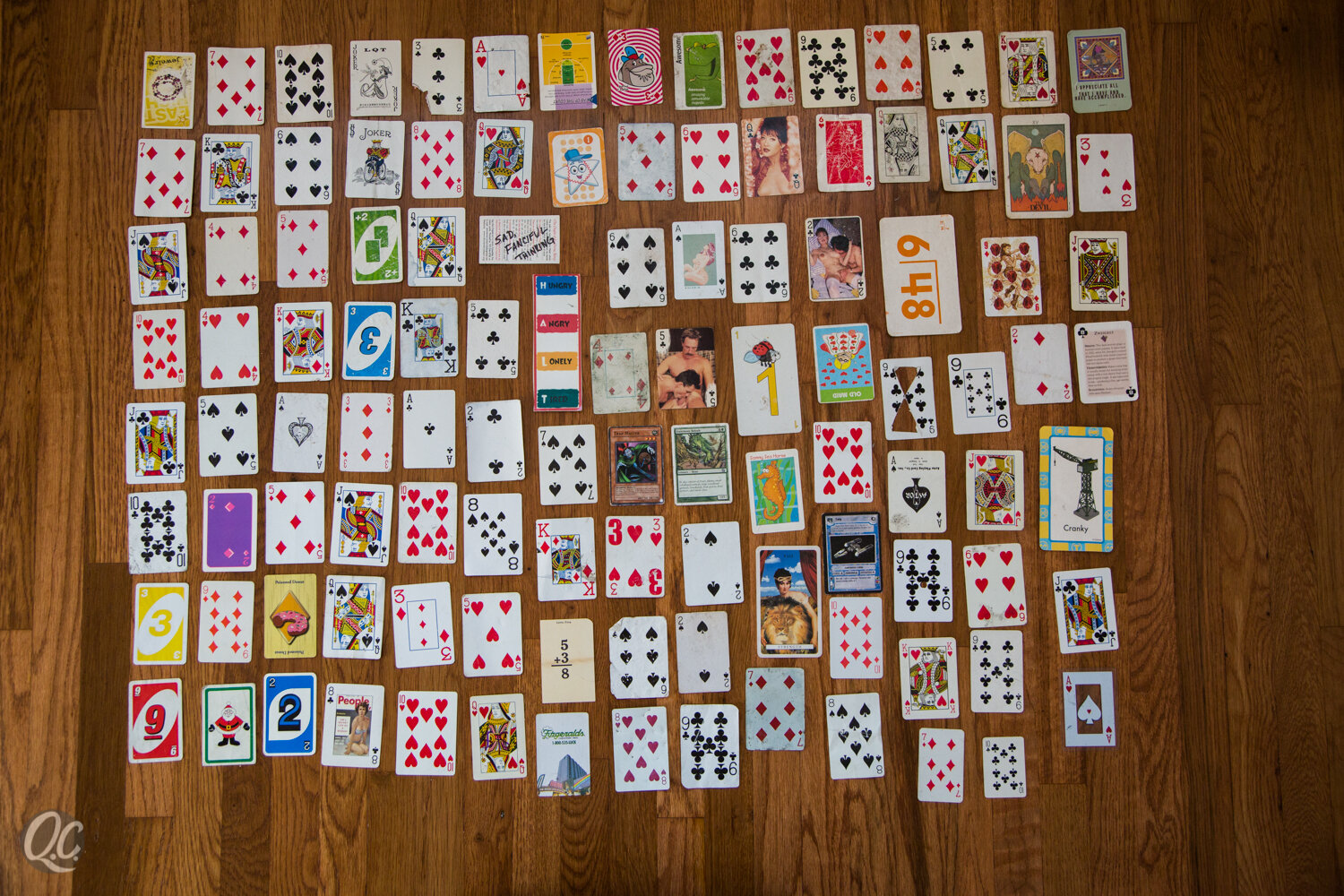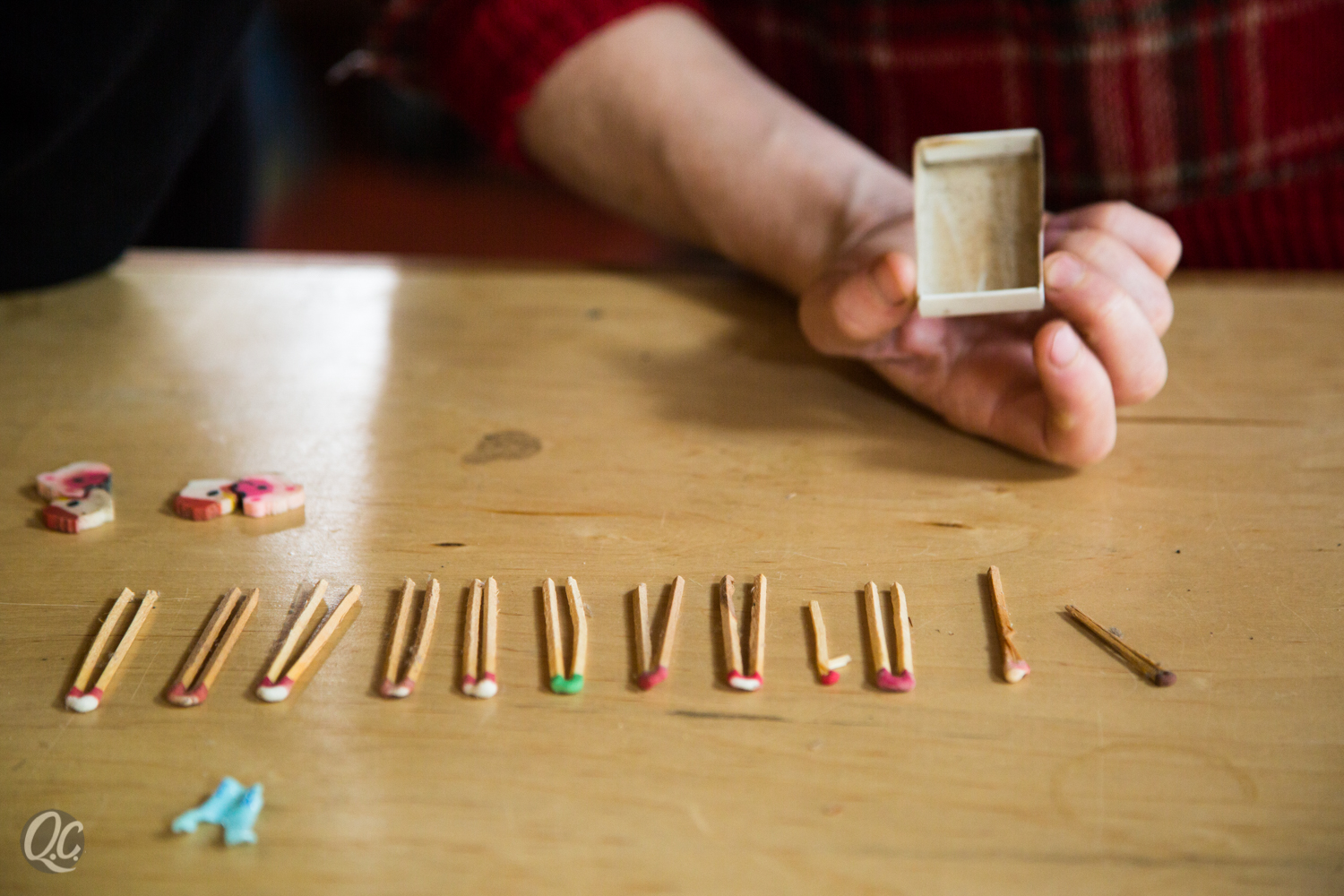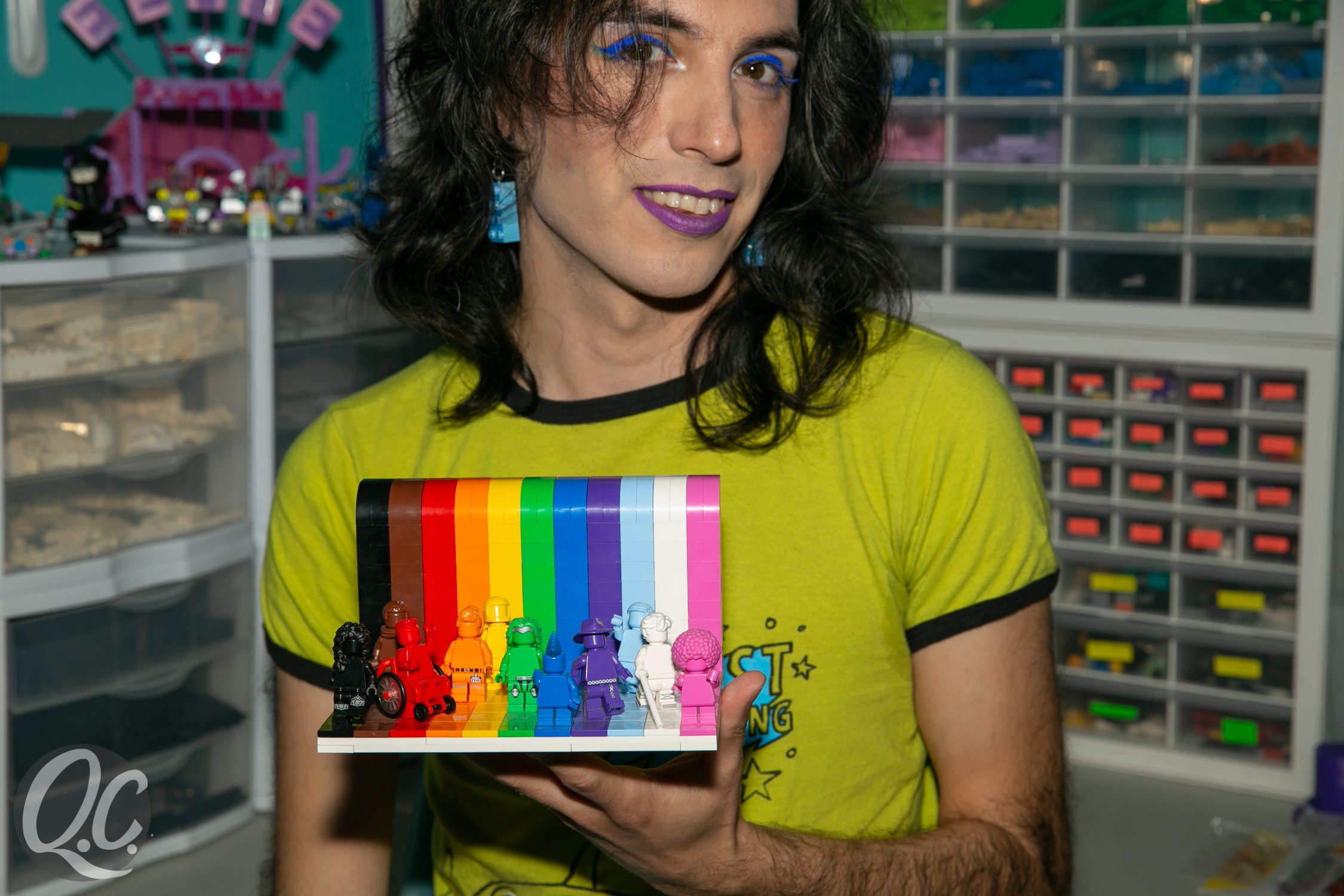Lisbet: Angela Davis Archive, Political Posters, Black Panther Archive & AP Photos
Lisbet with vintage poster from her political poster collection.
ZOE: Have you ever sold something that you wish that you hadn't?
LISBET: YES. My biggest triumph is also a source of pain.
So it goes up for auction and it’s like $1,000, $,200, $2,000, $2,200, $3,000…$10,000, $15,000, $20,000, $30,000, $36,000 at which point the auctioneer said, "We have just set the record for a piece of Black Panther memorabilia."
One thing a collector hates to do is sell their only anything, but there were some things that I just don't feel right having it sitting where no one is going to see it. There's this annual auction at this auction house; it’s called the African Americana Manuscripts, and it's where the museums do their shopping and like high-end collectors.
Before the Black Panther party started in Oakland, there was an organization that had the Black Panther Party name in Alabama started by Stokely Carmichael. It was a voting rights organization. I found IT on Ebay, for like $100, a handmade green and white flag with felt panther paw prints sewn in and a stencil of ‘67 and like a funky looking felt panther and if it was legit, it dated to the Alabama Panthers which made it a one-off piece of folk art political ephemera. It was $100 which is a lot in an Ebay setting, and I hadn’t seen it and I was like, let me just get it. It came and it was encrusted with bugs, and I could tell as soon as I got it that it was of that period. I was like, “This needs to be in a museum". I was like, "You know what? I'm going to put this in the auction." It deserves better than me. I remember Erika and I were at the auction that year and I think they valued it at like uh, $1,500-$2,500 and I was like, "Not bad for $100 investment." So it goes up for auction and it’s like $1,000, $1,200, $2,000, $2,200, $3,000, and at this point Erika is like {nudging with elbow} $10,000, $15,000, $20,000, $30,000, $36,000 at which point the auctioneer said, "We have just set the record for a piece of Black Panther memorabilia." The hammer price of $36,000 meant the buyer paid a buyer’s premium of $6,000 on top of that. They paid $42,000 for this flag...and it went to a collector in London. The losing bidder, the one who had stayed with them as long as possible was the Smithsonian African American Museum. I was like, AHHHHHHHHHHHHHH. That fucking hurt. That's what prompted me to get my government code and make connections with them directly 'cause that can't happen again. No. No.
Black Panther flag dating back to Stokely Carmichael’s voting rights organization in Alabama.
Z: It’s too bad you can’t put something out into the ether that’s like, "Whoever has this, when you go, give it to the Smithsonian."
L: Give it back! Yeah. Sigh. That price doesn't make sense for most people; a dealer would never pay that because you'll never be able to sell it for anywhere close to that, so it went to a big dollar collector. It's in some private collection—that could have been mine. You know? I don’t even think an institution other than the Smithsonian or somebody related to that history, they wouldn’t have paid that much money for it. So it’s got to be in a private collection of some high wealth individual, which just makes me sad cause that was the whole reason that I let go of it anyway.
Z: I guess the only thing you can do is look at it as the thing that gave you some amount of freedom to make sure that doesn't happen again.
Things meant something. Things meant something emotionally significant. Things have value not just to me personally, but externally.
L: Yeah, it did all of that. You know financially, you know at an auction...if one person...like I had a great thing the following year, it went for minimum bid. You need two people who are willing to do stupid things and not lose for it to be bid up, and I was the lucky recipient of that, but yeah, it just made me realize sometimes it’s maybe not really about the money.
You know, in a way, it put me on the map. It pushed me in a certain direction that was great, and yeah, I mean it's usually the painful lessons that you remember. It’s like all the good shit; you can forget that in five minutes.
Lisbet surrounded by her vintage posters.
Vintage Ché and Fidel posters.
Lisbet with vintage Angela Davis poster.
I was born in San Francisco, but I was raised in the East Bay. It was a street of primarily single moms, renters, ragamuffins and the nearest store to us was a hobby shop that pretty much sucked up the allowance of every kid in the neighborhood. There was not a lot of money on the block, but literally your comic books and your baseball cards were social currency.
My mother is an immigrant and was always a green-card-alien from Norway. She would have me go visit my godparents. I was always being put on a plane, and you know, she could never afford to buy two tickets, so there was just a lot of moving.
To this day I have a little suitcase that I traveled with every time I was somewhere abroad. It became my keepsake thing. That sort of keeping mementos of the journey with the thought of some day putting it all back together—I don’t have a very good memory. I'm not somebody who remembers a lot of things, so I think I've always relied on mementos or externals to kind of keep that for me.
So I guess all of that boils down to: Things meant something. Things meant something emotionally significant. Things have value not just to me personally, but externally.
Lisbet’s keepsake suitcase from childhood.
The back panel of Lisbet’s periodical for black lesbians, Aché.
Lisbet at her desk, describing how the evolution of an image worked in the 70s, 80s and 90s.
So born in the '60s, raised in the '70s. Pop culture is definitely a huge part of my thing and you know whereas I liked comics I liked baseball cards...I loved posters. As a kid, I was obsessed with Warhol and the factory. That was my entree into graphics.
A formative figure in my life who was kind of like a godfather, stepfather and grandfather all rolled into one, was a black communist. Close personal friend with folks like Langston Hughes, Paul Robeson. Every organization that he was involved in, he was the secretary, the notetaker, the keeper of the papers and I grew up surrounded by all these papers. At this point in time, I was usually the only kid in the mix. He was 25 years older than my mother. So, when we would go hangout at his friends', I would usually be the only kid. They'd stick you in the TV room, the den, but all of these people had houses where all the adventuring and traveling around the world was displayed on the walls. Their dens were huge libraries floor to ceiling with history. So I was just always surrounded with the artifacts of one's life.
When I was in my 20s and I moved back to SF, and you know, Free South Africa and you know Angela Davis, I started to collect political posters, and I became the record holder of the organizations. I started a black lesbian journal that became kind of a cultural arts organization during the late '80s and early '90s that had basically people sending me all kinds of—basically anything LGBT of color, globally.
Z: What was it called?
L: Aché. So instead of just posters, I began to collect materials and I thought, "Gosh, this is kind of a unique collection. Should probably keep it together in one file cabinet." So I became one of those people that was the keeper of the papers.
Lisbet’s collection of black activist AP photos.
Detail of black activist AP photo collection.
Detail of black activist AP photo collection.
Z: Do you feel that, I just have never thought about this before, but looking at all these Angela Davis Posters now, that a lot of this sort of artwork, a lot of these posters are based off of one maybe two images? You can see the evolution of all those posters.
You know I think a lot about how memory works. There is a specific place where this thing lives. How do we retrace those steps? Someone who knows you really well and has known you for your whole life could probably show you three pictures of a specific time and you could go right back there.
L: The evolution of an image! I come from the old school realm of graphic design, like cut and paste and all of that, so what will happen is something like LIFE magazine will do a piece and they'll do a full page photo. That will get cut out, and that photo will get manipulated, copied or dissected in many kinds of ways, and so there were only a few original sources of clean photos like that.
I was playing round with these images and after a while it became really unwieldy to look at them all online. I went down to the copy mat to make color xeroxes so I could just put them in a binder just so I could look at them without having to search around too much.
Muhammad Ali signs an autograph for Angela Davis and vice versa.
Muhammad Ali signs an autograph for Malcom X.
Lisbet, holding an Angela Davis binder, standing in front of a shelf of Angela Davis binders.
So I printed them out and put them in a binder. It was the era where newspaper archives were going online. More and more New York Times was being digitized and put online, and so I was like, some of these events, I bet I can find some press on. I started to locate the articles, or you know, I have a large collection of old alternative newspapers, I would scan and I'd start adding them to the binder. So, all of a sudden I had this chronological encyclopedia that was beginning to develop itself. It was very similar to me as a child collecting all these random pieces thinking that, someday, I'll be able to retrace my steps and put it back together like a jigsaw puzzle.
I probably have the largest Angela Davis archive that exists. I have a huge Black Panther archive that includes different collections. I have maybe 1000 Black Panther photographs.
So, I was working on this binder interface and one day, we were going to Angela's [Davis] house and I brought one of these binders, just to kind of show her...cause she doesn’t have—she gives me stuff. She's donated a lot of it. A lot of the material is in institutions. She's kind of removed from it. This [binder] is her as an image not necessarily real. This is a particular moment, month in her life. She's going through this with Erika [Huggins] and they are like, Gosh do you remember this? Yada yada yada. And we get to like some fairly pedestrian piece, like a JET magazine article and it’s starting to trigger memories. Like there's something about seeing multiple references to a specific time that is able to locate that place in your brain and so she's like—now this is a woman who has been interviewed a gazillion times and I can pretty much guarantee you she has not had this thought since this moment—but she was like, Erika, do you remember when this article came out, I looked so bad—she’d been on a hunger strike, and there was such an international outcry—that one day, you had just been released from jail, and you were outside and they let you come in, gave you a pair of scissors so you could give me a haircut?
Now that's not like a humungous story, but it’s such a sweet sister-girl-revolutionary moment. And Erika saw me doing this and was like, I don’t have any of my material, would you do that for me? And so I'm like, YES. So I started to track down that stuff. And, literally, I spent so much money just buying stuff simply so I could scan it and make it a page in a binder…so all of a sudden, I'm having a huge collection of panther stuff.
I'm obsessed with timelines and chronology.
You know I think a lot about how memory works. There is a specific place where this thing lives. How do we retrace those steps? Someone who knows you really well and has known you for your whole life could probably show you three pictures of a specific time, and you could go right back there. Because it’s all data storage, you know? So, like I obsess over file naming practices. How can I arrange this such that just throwing something in a folder will automatically create order? I have my own date convention. I don't want to separate Angela from the broader context of the time. I want to see how the panthers were related, you know, so I opt for true chronology over subject breakdown and maybe it’s more relevant to know what city...I spent years of my life fucking with that SHIT. That's my shit!
Z: What collections do you have active now?
L: I make a little bit of a distinction between collections and archives. I have a poster collection that is probably related to different themes. Political posters. Cuban posters. Black Panther posters. Angela Davis posters.
I probably have the largest Angela Davis archive that exists. I have a huge Black Panther archive that includes different collections. I have maybe 1000 Black Panther photographs. That's a separate collection within the context of the Black Panther archive. I have a black LGBT archive. It was purchased by Yale 5 years ago and just in the last couple of weeks, I saw they finally got the finding aid up, so the Lisbet Tellefsen Papers of that LGBT archive are now online.
Z: Do you feel that there is some correlation between like, not sexuality or gender and collecting, but maybe just a relationship...
L: I keep coming back to the idea of impermanence and memory, yeah so you turn one corner and you’re a hoarder. I can't watch any of those hoarding shows, it’s too uncomfortable and the psychology...
I recognize that part of me that is much more interested in the acquisition than the having stuff. I spend ten times more time tracking new stuff down than I do cataloging and interacting with what I already have.
Z: How do you do that?
L: Actually, any number of ways. I'm fairly good with my branding. People know me, so people contact me. I'm on every auction list with searches for things that I want, Ebay certainly Amazon, any number of other collectors. We trade; we do things with each other. It’s a very specific thing, and because I'm not made of money, I focused my collections. There’s lot of things that I'm interested in but I can’t indulge in, and like a lot of people in my situation, at some point collecting also becomes dealing. So I have been successful at selling things. I can't afford really to buy at these functions, but I will sell at these functions. So I kind of worked my way up to...you know I use this example:
Vintage Black Panthers Poster.
Vintage Bobby Seale Poster.
So your uncle dies, you find a black panther poster amongst his stuff and you say, “This is probably worth something.” So when you do a garage sale, you’re going to put a $50 price tag on that, and somebody else comes along and sees a black panther poster for $50 bucks and they think, “Ahh you know what? On Ebay I could probably get like $2-300 for that, so I'm going to go buy it and put it up on Ebay." Then somebody like me is going to go, "Ohhhh $2-300 for that? I could sell that $2-3,000 at my auction." So, I'll pick that up and pop it up in auctions and museums that are battling for it. And you think every step along the way, the person that sold it for their price, was happy. They got a good deal. They made some money off of it. Every step along the way. I actually got my government numbers, so now I'm a government member, so I can kind of scout, you know? I have connects wherever and I can say, "Do you guys have this in your collection? Would you be interested?"
Z: So the thing that puts you in that marketplace is having all the information-being an expert about it?
L: At this point, yeah. I mean I started as the young scrub under those people that were at the top of their field, and now at 56, I have that reputation. I have that collection.
Z: What did your mother do?
L: She worked at the coop credit union. She worked in the loan department for the credit union. I think at her height, she made like $18,000 a year and at some point had a second investment property. A little house. All the people in the loan department had rental houses. When I was at the Black Panther Gala, Huey Newton's widow, Fredrika, came up and said, "Your mother gave me my first loan." THAT'S HELLA COOL!









































